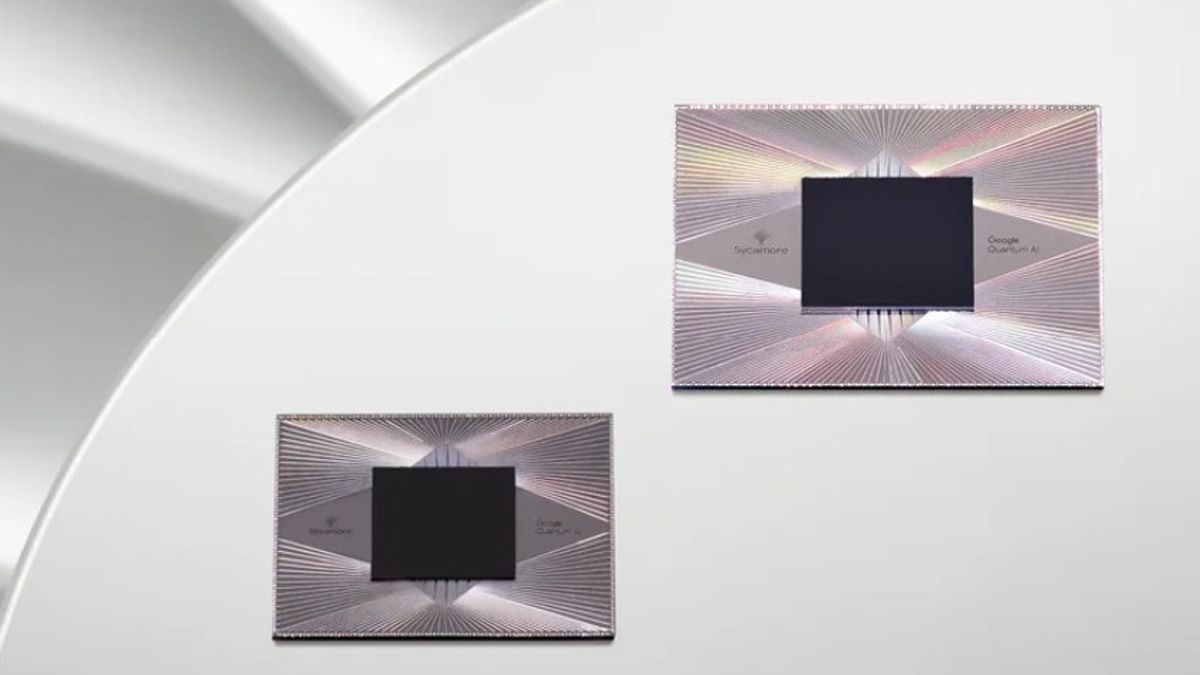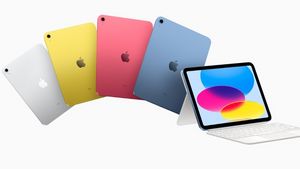JAKARTA - A new milestone has been achieved by Google researchers, where they can correct errors attached to current quantum computers.
Researchers at Google Quantum AI say they have found a way to reduce the error rate as system size increases, which they describe as breaking-even.
"So in financial language, we reached a break-even point, but that's certainly not good enough. We need to hit a really low level of error," said engineering director at Google Quantum AI, Dr Hartmut Neven.
Neven added that although there are still challenges that lie ahead, he is confident that at this stage it will promise commercial value for quantum computers.
Quantum computers use quantum physics properties to store data and perform computing. Basic units of information in conventional computers are called bits and stored as strings 1 and 0.
In a quantum computer system, these units are known as qubits and can be 1 and 0 at once. In theory, this gives a much larger computational power quantum machine by performing calculations that will take thousands of years on ordinary computers, as quoted from The Independent, Thursday, February 23.
"Instead of working on physical qubits on our quantum processors one by one, we treat the group as a logical qubit. As a result, the logical qubits we created from 49 physical qubits were able to outperform the qubits we made from 17 qubits," said Alphabet CEO Sundar Pichai in the company's official blog.
Google's quantum computer works by manipulating qubits in a regulated way, called a quantum algorithm. The challenge is, qubits are so sensitive that deviant light can cause miscalculation and the problem gets worse as quantum computer growth.
"This has significant consequences, because the best quantum algorithm we know to run useful applications requires our qubit error rate much lower than we currently have. To bridge this gap, we require quantum error corrections," Pichai said.
Quantum error corrections protect information by juxtaposing it in some physical qubits to form logical qubits, and it is believed by Google researchers to be the only way to generate large-scale quantum computers with error rates low enough for useful calculations. Their work was published in the journal Nature Wednesday 22 February.
"Quantum computers have the potential to provide real benefits for the lives of millions of people. One day, we believe a quantum computer will be used to identify molecules for new drugs, make fertilizers use less energy, design more efficient sustainable technologies from batteries to nuclear fusion reactors, and produce physics research that will produce progress that we cannot yet imagine," explained Pichai.
Pichai said the company was taking steps to responsibly develop quantum computing, given its strong potential.
"Our partnership with the government and the security community helps create systems that can protect internet traffic from future quantum computer attacks. And we ensure services such as Google Cloud, Android, and Chrome remain safe and protected in the future quantum," concluded Pichai.
The English, Chinese, Japanese, Arabic, and French versions are automatically generated by the AI. So there may still be inaccuracies in translating, please always see Indonesian as our main language. (system supported by DigitalSiber.id)











